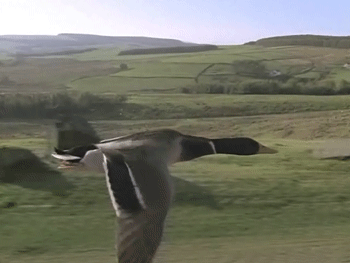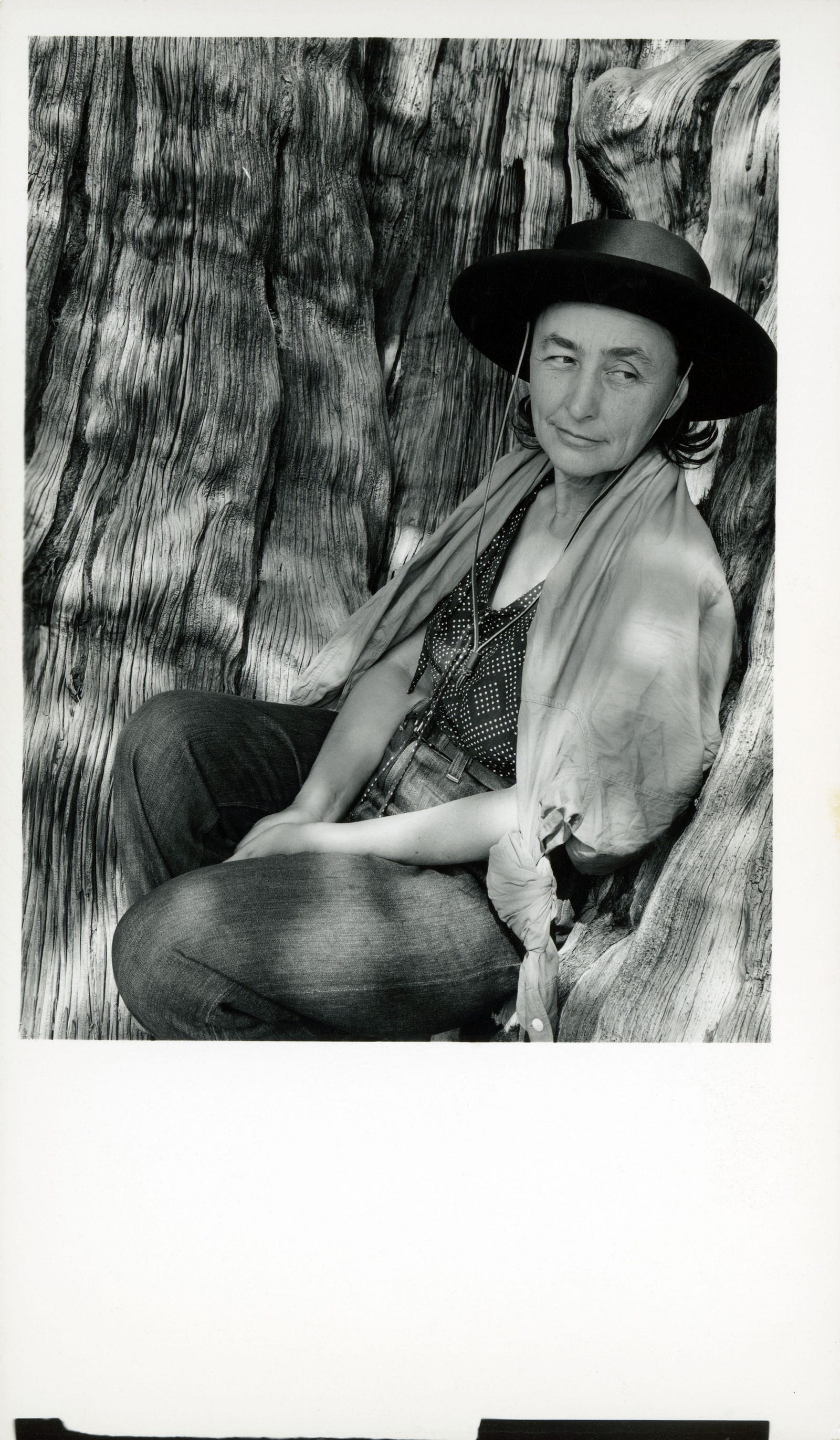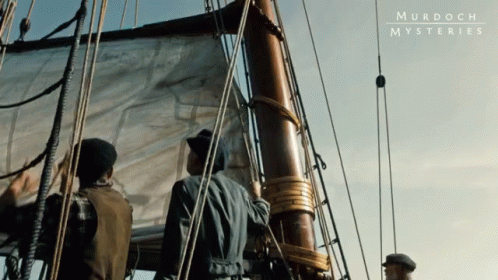31 March 2019
Four Seasons fill the measure of the year;
There are four seasons in the mind of man:
He has his lusty Spring, when fancy clear
Takes in all beauty with an easy span:
He has his Summer, when luxuriously
Spring's honied cud of youthful thought he loves
To ruminate, and by such dreaming high
Is nearest unto heaven: quiet coves
His soul has in its Autumn, when his wings
He furleth close; contented so to look
On mists in idleness—to let fair things
Pass by unheeded as a threshold brook.
He has his Winter too of pale misfeature,
Or else he would forego his mortal nature.
John Keats
Transmission.
The fashionable fallacy is that by education we can give people something that we have not got. To hear people talk one would think it was some sort of magic chemistry, by which, out of a laborious hotchpotch of hygienic meals, baths, breathing exercises, fresh air and freehand drawing, we can produce something splendid by accident; we can create what we cannot conceive. These pages have, of course, no other general purpose than to point out that we cannot create anything good until we have conceived it. It is odd that these people, who in the matter of heredity are so sullenly attached to law, in the matter of environment seem almost to believe in miracle. They insist that nothing but what was in the bodies of the parents can go to make the bodies of the children. But they seem somehow to think that things can get into the heads of the children which were not in the heads of the parents, or, indeed, anywhere else.
There has arisen in this connection a foolish and wicked cry typical of the confusion. I mean the cry, “Save the children.” It is, of course, part of that modern morbidity that insists on treating the State (which is the home of man) as a sort of desperate expedient in time of panic. This terrified opportunism is also the origin of the Socialist and other schemes. Just as they would collect and share all the food as men do in a famine, so they would divide the children from their fathers, as men do in a shipwreck. That a human community might conceivably not be in a condition of famine or shipwreck never seems to cross their minds. This cry of “save the children” has in it the hateful implication that it is impossible to save the fathers; in other words, that many millions of grown-up, sane, responsible and self-supporting Europeans are to be treated as dirt or debris and swept away out of the discussion; called dipsomaniacs because they drink in public houses instead of private houses; called unemployables because nobody knows how to get them work; called dullards if they still adhere to conventions, and called loafers if they still love liberty. Now I am concerned, first and last, to maintain that unless you can save the fathers, you cannot save the children; that at present we cannot save others, for we cannot save ourselves. We cannot teach citizenship if we are not citizens; we cannot free others if we have forgotten the appetite of freedom. Education is only truth in a state of transmission; and how can we pass on truth if it has never come into our hand? Thus we find that education is of all the cases the clearest for our general purpose. It is vain to save children; for they cannot remain children. By hypothesis we are teaching them to be men; and how can it be so simple to teach an ideal manhood to others if it is so vain and hopeless to find one for ourselves?
CONNECT
Bach, "Wir danken dir, Gott, wir danken dir," BWV 29
The Netherlands Bach Society performs, conducted by Jos Van Veldhoven ...
30 March 2019
Valuable.
CONNECT
Thank You, Jessica.
Continuous.
Dōgen
Happy Birthday, van Gogh
van Gogh, Small Pear Tree, 1888
A letter to his brother, Theo, dated April 3, 1878 ...
I have been thinking over what we were discussing, and the saying sprang to mind, "Nous sommes aujourd'hui ce que nous étions hier." [We are today what we were yesterday] That does not mean that one must stand still and may not try to improve oneself, on the contrary, it is a compelling reason for doing so and for being glad to do so. But to be true to the saying, one must not backslide, and once one has started to look at things freely and openly, one must not face about or stray.
Those who said: “We are the same today as we were yesterday,” were “honnêtes hommes” [honest men], as is apparent from the constitution they drew up, which will remain for all time and of which it has been well said that it was written “avec le rayon d'en haut et d'un doigt de feu.” [With a ray of light from on high and a fiery finger”].
It is a good thing to be an “honnêtes homme” and to try increasingly to be one, partially and wholly, and one does well to understand that this entails being an “homme intéreur et spirituel.” [An inward and spiritual man].
He who is firmly convinced he is one of their band will always go about his business quietly and calmly, never doubting that all must end well. There once was a man who went to church and asked: “Can it be that my ardour has deceived me, that I have taken a wrong turning and managed things badly? Oh! if only I could be rid of this doubt and know for certain I shall come out victorious and succeed in the end.” And then a voice answered him: “And if you were certain, what would you do then? Act now as if you were certain and you will not be disappointed.” Then the man went on his way, not unbelieving but believing, and returned to his work no longer doubting or wavering.
As for being an `homme intéreur et spirituel' might one not be able to develop into one through knowledge of history in general and of certain individuals from all ages in particular, from the history of the Bible to that of the Revolution and from the Odyssey to the books of Dickens and Michelet? And could we not learn something from the work of such men as Rembrandt and from Breton's Mauvaises Herbes or Millet's The Hours of the Day, Le Bénédicité by de Groux or Brion, or The Conscript by de Groux (or else by Conscience) or his Apothécaire or The Large Oaks, by Dupré, or even by Michel's mills and sandy plains?
It is by continually holding fast to these thoughts and deeds that we are filled with a good leaven at the last, that of being sorrowful yet always rejoicing, which will become apparent when our lives have come to fruition, bearing the fruits of good works.
Le rayon d'en haut does not always shine upon us and may well be hidden behind clouds, but without that light a man cannot live and is worth nothing and can do no good, and those who claim that man can live without faith in that higher light and need not trouble to acquire it, are sure to have their hopes dashed.
We have talked a good deal about our duty and how we may attain the right goal, and we have properly concluded that our first objective must be to find a specific position and a profession to which we can wholly devote ourselves. And I believe that we also agreed on this point, viz. that one must pay particular attention to the end, and that a victory gained after a whole life of work and effort is better than one gained with greater dispatch.
Anyone who lives an upright life and experiences real difficulty and disappointment and yet is not crushed by them is worth more than one for whom everything has always been plain sailing and who has known nothing but relative prosperity. For who are the most obviously superior to us? Those who merit the words: “Laboureurs, votre vie est triste, laboureurs, vous souffrez dans la vie, laboureurs, vous êtes bien-heureaux,” [Labourers, your life is sad, labourers, your life is full of suffering, labourers, you are blessed]. It is they who bear the marks of “toute une vie de lutte et de travail soutenu sans flêchir jamais.” [a whole life of struggle and labour borne unflinchingly] It is right to try to become like that. So we go on our way, “undefessi favente Deo.” [Should be indefessi favente Deo,]
As for me, I must become a good preacher, who has something to say that is right and is of use in the world, and perhaps it is as well that I should spend a relatively long time on preparation and be securely confirmed in an unwavering faith before I am called to speak to others about it. (It is fitting that before one embarks upon that work, a treasure should be gathered up that others can enjoy). Let us but go forth quietly, testing everything and holding fast to what is good, and trying all the time to learn more of what is useful and adds to our experience. Weemoed [melancholy] may be a good experience, provided we write it as two words: wee , which is in every man, each of us having reason enough, but it must be allied to moed, and the more the better, for it is good to be someone who never despairs.
If only we try to live righteously, we shall fare well, even though we are bound to encounter genuine sadness and real disappointments and shall probably commit real mistakes and do things that are wrong, but it is certainly better to be ardent in spirit, even though one makes more mistakes, than to be narrow-minded and over-cautious.
It is good to love as many things as one can, for therein lies true strength, and those who loves much, do much and accomplish much, and whatever is done with love is done well. If one is affected by some book or other, let us say by Michelet's L' hirondelle, L'alouette, Le rossignol, Les aspirations d'aut-omne, Je vois d'ici une dame, J'aimais cette petite ville singulière - to mention just a few, then it is because that book is written from the heart in simplicity and meekness of spirit. Better to say but a few words, but filled with meaning, than to say many that are but idle sounds and as easy to utter as they are useless
Love is the best and the noblest thing in the human heart, especially when it is tested by life as gold is tested by fire. Happy is he who has loved much, and is sure of himself, and although he may have wavered and doubted, he has kept that divine spark alive and returned to what was in the beginning and ever shall be. If only one keeps loving faithfully what is truly worth loving and does not squander one's love on trivial and insignificant and meaningless things then one will gradually obtain more light and grow stronger.
The sooner one tries to become accomplished in a certain position in life and a certain field and adopts a relatively independent way of thinking and acting, and the more one keeps to set rules, the stronger in character one will grow, and that does not mean becoming narrow-minded. It is a wise thing to do this, because life is short, and time passes quickly. If one is accomplished in one single thing, understanding one single thing well, then one has insight into and knowledge of many other things into the bargain.
It's as well to go out into the world from time to time and mix with other people (and sometimes one feels, in fact, obliged and called upon to do so) - or it may simply be one way "de se jeter dans le travail sans arrière pensée et de toutes ses forces" [Of throwing oneself into work unreservedly and with all one's strength] - but one who prefers to be quietly alone with his work and seems to need very few friends will go safest in the world and among people. One should never feel secure just because one has no difficulties or cares or handicaps, and one should never be too easy-going. Even in the politest circles and the best surroundings and circumstances one should retain something of the original character of a Robinson Crusoe or of primitive man, for otherwise one cannot be rooted in oneself, and one must never let the fire in one's soul die, for the time will inevitably come when it will be needed. And he who chooses poverty for himself and loves it possesses a great treasure and will hear the voice of his conscience address him ever more clearly. He who hears that voice, which is God's greatest gift, in his innermost being and follows it, finds in it a friend at last, and is never alone!
Happy is he who has faith in God, for he will in the end be tided over all life's difficulties, albeit not without trouble and sorrow. One cannot do better than hold on to the thought of God come what may, in all circumstances, in every place and at all times, and try to get to know Him better. One can learn this from the Bible as well as from all other things. It is good to go on believing that everything is more miraculous than one can ever begin to understand, for that is the truth; it is good to remain sensitive and humble and tender-hearted even though one may have to hide one's feelings, as is often necessary. It is good to be well versed in the things that are hidden from the wise and the learned of this world, but that are revealed as if by nature to the poor and simple, to women and little children. For what can one learn which is better than that which God has given by nature to every human soul and which goes on living and loving, hoping and believing, in the depths of every soul, unless we wantonly destroy it.
The need is for nothing less than the infinite and the miraculous, and a man does well to be satisfied with nothing less, and not to feel easy until he has gained it.
That is what all great men have acknowledged in their works, all those who have thought a little more deeply and searched and worked and loved a little more than the rest, who have plumbed the depths of the sea of life. Plumb the depths, that is what we too must do if we want to make a catch, and if we sometimes have to work the whole night through without catching anything, then we do well not to give up and to cast the net once more at dawn.
So let us go forward quietly, each on his own path, forever making for the light, "sursum corda" [lift up your hearts], and in the knowledge that we are as others are and that others are as we are and that it is right to love one another in the best possible way, believing all things, hoping for all things and enduring all things, and never failing. And not being too troubled by our weaknesses, for even he who has none, has one weakness, namely that he has none, and anyone who believes himself to be consummately wise would do well to be foolish all over again.
"Nous sommes aujourd'hui ce que nous étions hier," that is, "honnêtes hommes," yet men who must be tested in the fire of life to become fortified inwardly are confirmed in what, by the grace of God, they are by nature.
So may it be with us, my boy, and may you fare well along your path, and may God be with you in all things and help you to succeed, which, with a warm handshake on your departure, is the wish of
Your very loving brother,
Vincent
It is only a very small light, the one in the little Sunday-school room in Barndesteeg, but let me keep it burning. Even if I should not, however, I do not think that Adler is the man to let it go out.
The van Gogh episode of Simon Schama's Power of Art ...
Vincent van Gogh was born on this date in 1853.
I have been thinking over what we were discussing, and the saying sprang to mind, "Nous sommes aujourd'hui ce que nous étions hier." [We are today what we were yesterday] That does not mean that one must stand still and may not try to improve oneself, on the contrary, it is a compelling reason for doing so and for being glad to do so. But to be true to the saying, one must not backslide, and once one has started to look at things freely and openly, one must not face about or stray.
Those who said: “We are the same today as we were yesterday,” were “honnêtes hommes” [honest men], as is apparent from the constitution they drew up, which will remain for all time and of which it has been well said that it was written “avec le rayon d'en haut et d'un doigt de feu.” [With a ray of light from on high and a fiery finger”].
It is a good thing to be an “honnêtes homme” and to try increasingly to be one, partially and wholly, and one does well to understand that this entails being an “homme intéreur et spirituel.” [An inward and spiritual man].
He who is firmly convinced he is one of their band will always go about his business quietly and calmly, never doubting that all must end well. There once was a man who went to church and asked: “Can it be that my ardour has deceived me, that I have taken a wrong turning and managed things badly? Oh! if only I could be rid of this doubt and know for certain I shall come out victorious and succeed in the end.” And then a voice answered him: “And if you were certain, what would you do then? Act now as if you were certain and you will not be disappointed.” Then the man went on his way, not unbelieving but believing, and returned to his work no longer doubting or wavering.
As for being an `homme intéreur et spirituel' might one not be able to develop into one through knowledge of history in general and of certain individuals from all ages in particular, from the history of the Bible to that of the Revolution and from the Odyssey to the books of Dickens and Michelet? And could we not learn something from the work of such men as Rembrandt and from Breton's Mauvaises Herbes or Millet's The Hours of the Day, Le Bénédicité by de Groux or Brion, or The Conscript by de Groux (or else by Conscience) or his Apothécaire or The Large Oaks, by Dupré, or even by Michel's mills and sandy plains?
It is by continually holding fast to these thoughts and deeds that we are filled with a good leaven at the last, that of being sorrowful yet always rejoicing, which will become apparent when our lives have come to fruition, bearing the fruits of good works.
Le rayon d'en haut does not always shine upon us and may well be hidden behind clouds, but without that light a man cannot live and is worth nothing and can do no good, and those who claim that man can live without faith in that higher light and need not trouble to acquire it, are sure to have their hopes dashed.
We have talked a good deal about our duty and how we may attain the right goal, and we have properly concluded that our first objective must be to find a specific position and a profession to which we can wholly devote ourselves. And I believe that we also agreed on this point, viz. that one must pay particular attention to the end, and that a victory gained after a whole life of work and effort is better than one gained with greater dispatch.
Anyone who lives an upright life and experiences real difficulty and disappointment and yet is not crushed by them is worth more than one for whom everything has always been plain sailing and who has known nothing but relative prosperity. For who are the most obviously superior to us? Those who merit the words: “Laboureurs, votre vie est triste, laboureurs, vous souffrez dans la vie, laboureurs, vous êtes bien-heureaux,” [Labourers, your life is sad, labourers, your life is full of suffering, labourers, you are blessed]. It is they who bear the marks of “toute une vie de lutte et de travail soutenu sans flêchir jamais.” [a whole life of struggle and labour borne unflinchingly] It is right to try to become like that. So we go on our way, “undefessi favente Deo.” [Should be indefessi favente Deo,]
As for me, I must become a good preacher, who has something to say that is right and is of use in the world, and perhaps it is as well that I should spend a relatively long time on preparation and be securely confirmed in an unwavering faith before I am called to speak to others about it. (It is fitting that before one embarks upon that work, a treasure should be gathered up that others can enjoy). Let us but go forth quietly, testing everything and holding fast to what is good, and trying all the time to learn more of what is useful and adds to our experience. Weemoed [melancholy] may be a good experience, provided we write it as two words: wee , which is in every man, each of us having reason enough, but it must be allied to moed, and the more the better, for it is good to be someone who never despairs.
If only we try to live righteously, we shall fare well, even though we are bound to encounter genuine sadness and real disappointments and shall probably commit real mistakes and do things that are wrong, but it is certainly better to be ardent in spirit, even though one makes more mistakes, than to be narrow-minded and over-cautious.
It is good to love as many things as one can, for therein lies true strength, and those who loves much, do much and accomplish much, and whatever is done with love is done well. If one is affected by some book or other, let us say by Michelet's L' hirondelle, L'alouette, Le rossignol, Les aspirations d'aut-omne, Je vois d'ici une dame, J'aimais cette petite ville singulière - to mention just a few, then it is because that book is written from the heart in simplicity and meekness of spirit. Better to say but a few words, but filled with meaning, than to say many that are but idle sounds and as easy to utter as they are useless
Love is the best and the noblest thing in the human heart, especially when it is tested by life as gold is tested by fire. Happy is he who has loved much, and is sure of himself, and although he may have wavered and doubted, he has kept that divine spark alive and returned to what was in the beginning and ever shall be. If only one keeps loving faithfully what is truly worth loving and does not squander one's love on trivial and insignificant and meaningless things then one will gradually obtain more light and grow stronger.
The sooner one tries to become accomplished in a certain position in life and a certain field and adopts a relatively independent way of thinking and acting, and the more one keeps to set rules, the stronger in character one will grow, and that does not mean becoming narrow-minded. It is a wise thing to do this, because life is short, and time passes quickly. If one is accomplished in one single thing, understanding one single thing well, then one has insight into and knowledge of many other things into the bargain.
It's as well to go out into the world from time to time and mix with other people (and sometimes one feels, in fact, obliged and called upon to do so) - or it may simply be one way "de se jeter dans le travail sans arrière pensée et de toutes ses forces" [Of throwing oneself into work unreservedly and with all one's strength] - but one who prefers to be quietly alone with his work and seems to need very few friends will go safest in the world and among people. One should never feel secure just because one has no difficulties or cares or handicaps, and one should never be too easy-going. Even in the politest circles and the best surroundings and circumstances one should retain something of the original character of a Robinson Crusoe or of primitive man, for otherwise one cannot be rooted in oneself, and one must never let the fire in one's soul die, for the time will inevitably come when it will be needed. And he who chooses poverty for himself and loves it possesses a great treasure and will hear the voice of his conscience address him ever more clearly. He who hears that voice, which is God's greatest gift, in his innermost being and follows it, finds in it a friend at last, and is never alone!
Happy is he who has faith in God, for he will in the end be tided over all life's difficulties, albeit not without trouble and sorrow. One cannot do better than hold on to the thought of God come what may, in all circumstances, in every place and at all times, and try to get to know Him better. One can learn this from the Bible as well as from all other things. It is good to go on believing that everything is more miraculous than one can ever begin to understand, for that is the truth; it is good to remain sensitive and humble and tender-hearted even though one may have to hide one's feelings, as is often necessary. It is good to be well versed in the things that are hidden from the wise and the learned of this world, but that are revealed as if by nature to the poor and simple, to women and little children. For what can one learn which is better than that which God has given by nature to every human soul and which goes on living and loving, hoping and believing, in the depths of every soul, unless we wantonly destroy it.
The need is for nothing less than the infinite and the miraculous, and a man does well to be satisfied with nothing less, and not to feel easy until he has gained it.
That is what all great men have acknowledged in their works, all those who have thought a little more deeply and searched and worked and loved a little more than the rest, who have plumbed the depths of the sea of life. Plumb the depths, that is what we too must do if we want to make a catch, and if we sometimes have to work the whole night through without catching anything, then we do well not to give up and to cast the net once more at dawn.
So let us go forward quietly, each on his own path, forever making for the light, "sursum corda" [lift up your hearts], and in the knowledge that we are as others are and that others are as we are and that it is right to love one another in the best possible way, believing all things, hoping for all things and enduring all things, and never failing. And not being too troubled by our weaknesses, for even he who has none, has one weakness, namely that he has none, and anyone who believes himself to be consummately wise would do well to be foolish all over again.
"Nous sommes aujourd'hui ce que nous étions hier," that is, "honnêtes hommes," yet men who must be tested in the fire of life to become fortified inwardly are confirmed in what, by the grace of God, they are by nature.
So may it be with us, my boy, and may you fare well along your path, and may God be with you in all things and help you to succeed, which, with a warm handshake on your departure, is the wish of
Your very loving brother,
Vincent
It is only a very small light, the one in the little Sunday-school room in Barndesteeg, but let me keep it burning. Even if I should not, however, I do not think that Adler is the man to let it go out.
The van Gogh episode of Simon Schama's Power of Art ...
29 March 2019
Ourselves.
Harold Bloom
28 March 2019
Free.
Adams, Georgia O’Keeffe at Yosemite, 1938
Georgia O'Keeffe
I get out my work and have a show for myself before I have it publicly. I make up my own mind about it--how good or bad or indifferent it is. After that, the critics can write what they please. I have already settled it for myself so flattery and criticism go down the same drain and I am quite free.
Georgia O'Keeffe
Imagine.
You can't imagine what it's like. There was the green, this grass, that just went on forever, and the clay, the infield, the dirt of the infield, so brown, and the bases were so white and the scoreboard with all of that news, you know, Ballantine beer, and what was happening in Detroit, all the news, it was this big gigantic place ...
There was a great deal of respect in that building, for the past, and for the game.
Billy Crystal
I was hit the same way when I walked up the steps to our seats in old Tiger Stadium and saw the lush green of the grass and the glaring white of the Tigers' uniforms the day my Dad took me to see my first game, May 15, 1976. I saw Mark Fidrych pitch.
There was a great deal of respect in that building, for the past, and for the game.
Billy Crystal
I was hit the same way when I walked up the steps to our seats in old Tiger Stadium and saw the lush green of the grass and the glaring white of the Tigers' uniforms the day my Dad took me to see my first game, May 15, 1976. I saw Mark Fidrych pitch.
Timeless.
BASEBALL IS
Baseball is grass, chalk, and dirt displayed the same yet differently
In every park that has ever heard the words play ball.
Baseball is a passion that bonds and divides all those who know it.
Baseball is a pair of hands stained with newsprint,
A set of eyes squinting to read a boxscore,
A brow creased in an attempt to recreate a three-hour game
From an inch square block of type.
Baseball is the hat I wear to mow the lawn.
Baseball is a simple game of catch
and the never-ending search for the perfect knuckleball.
Baseball is Willie vs Mickey, Gibson vs Koufax, and Buddy Biancalana vs the odds.
Baseball links Kansan and Missourian, American and Japanese,
But most of all father and son.
Baseball is the scent of spring,
The unmistakable sound of a double down the line,
And the face of a 10-year-old emerging from a pile of bodies
With a worthless yet priceless foul ball.
Baseball is a language of very simple words that tell unbelievably magic tales.
Baseball is three brothers in the same uniform on the same team for one brief summer
Captured forever in a black and white photo on a table by the couch.
Baseball is a glove on a shelf, oiled and tightly wrapped,
Slumbering through the stark winter months.
Baseball is a breast pocket bulging with a transistor radio.
Baseball is the reason there are transistor radios.
Baseball is a voice in a box describing men you've never met,
In a place you've never been,
Doing things you'll never have the chance to do.
Baseball is a dream that you never really give up on.
Baseball is precious.
Baseball is timeless.
Baseball is forever.
Greg Hall
Return.
Without looking for the traces I may have left;
A cuckoo’s song beckons me to return home;
Hearing this, I tilt my head to see
Who has told me to turn back;
But do not ask me where I am going,
As I travel in this limitless world,
Where every step I take is my home.
Dōgen
Purcell, Music for a While, Z 583/2
Wond'ring, wond'ring
how your pains were eased, eased, eased
Performed by soprano Mireille Asselin, accompanied by lutenist Lucas Harris ...
how your pains were eased, eased, eased
Performed by soprano Mireille Asselin, accompanied by lutenist Lucas Harris ...
27 March 2019
26 March 2019
Howl.
You are the stone that has no resting place.
You are the diseased one
whom we fear to touch.
Only the wind is yours.
You are poor like the spring rain
that gently caresses the city;
like wishes muttered in a prison cell, without a world to hold them;
and like the invalid, turning in his bed to ease the pain.
Like flowers along the track, shuddering
as the train roars by, and like the hand
that covers our face when we cry - that poor.
Yours is the suffering of birds on freezing nights,
of dogs who go hungry for days.
Yours the long sad waiting of animals
who are locked up and forgotten.
You are the beggar who averts his face,
the homeless person who has given up asking;
you howl in the storm.
Rainer Maria Rilke
Respect.
§176. Respect for flag
No disrespect should be shown to the flag of the United States of America; the flag should not be dipped to any person or thing. Regimental colors, State flags, and organization or institutional flags are to be dipped as a mark of honor.
- The flag should never be displayed with the union down, except as a signal of dire distress in instances of extreme danger to life or property.
- The flag should never touch anything beneath it, such as the ground, the floor, water, or merchandise.
- The flag should never be carried flat or horizontally, but always aloft and free.
- The flag should never be used as wearing apparel, bedding, or drapery. It should never be festooned, drawn back, nor up, in folds, but always allowed to fall free. Bunting of blue, white, and red, always arranged with the blue above, the white in the middle, and the red below, should be used for covering a speaker's desk, draping the front of the platform, and for decoration in general.
- The flag should never be fastened, displayed, used, or stored in such a manner as to permit it to be easily torn, soiled, or damaged in any way.
- The flag should never be used as a covering for a ceiling.
- The flag should never have placed upon it, nor on any part of it, nor attached to it any mark, insignia, letter, word, figure, design, picture, or drawing of any nature.
- The flag should never be used as a receptacle for receiving, holding, carrying, or delivering anything.
- The flag should never be used for advertising purposes in any manner whatsoever. It should not be embroidered on such articles as cushions or handkerchiefs and the like, printed or otherwise impressed on paper napkins or boxes or anything that is designed for temporary use and discard. Advertising signs should not be fastened to a staff or halyard from which the flag is flown.
- No part of the flag should ever be used as a costume or athletic uniform. However, a flag patch may be affixed to the uniform of military personnel, firemen, policemen, and members of patriotic organizations. The flag represents a living country and is itself considered a living thing. Therefore, the lapel flag pin being a replica, should be worn on the left lapel near the heart.
- The flag, when it is in such condition that it is no longer a fitting emblem for display, should be destroyed in a dignified way, preferably by burning.
Stop disrespecting the flag. Don't wear it on t-shirts, socks, underwear, or boots; don't put it on paper plates or napkins; and do not touch it.
Respect the flag and the brave men and women who have sacrificed to keep it flying.
CONNECT
Respect the flag and the brave men and women who have sacrificed to keep it flying.
CONNECT
Yielded.
EACH and ALL
Little thinks, in the field, yon red-cloaked clown,
Of thee from the hill-top looking down;
The heifer that lows in the upland farm,
Far-heard, lows not thine ear to charm;
The sexton, tolling his bell at noon,
Deems not that great Napoleon
Stops his horse, and lists with delight,
Whilst his files sweep round yon Alpine height;
Nor knowest thou what argument
Thy life to thy neighbor's creed has lent.
All are needed by each one;
Nothing is fair or good alone.
I thought the sparrow's note from heaven,
Singing at dawn on the alder bough;
I brought him home, in his nest, at even;
He sings the song, but it pleases not now,
For I did not bring home the river and sky; —
He sang to my ear, — they sang to my eye.
The delicate shells lay on the shore;
The bubbles of the latest wave
Fresh pearls to their enamel gave;
And the bellowing of the savage sea
Greeted their safe escape to me.
I wiped away the weeds and foam,
I fetched my sea-born treasures home;
But the poor, unsightly, noisome things
Had left their beauty on the shore,
With the sun, and the sand, and the wild uproar.
The lover watched his graceful maid,
As 'mid the virgin train she stayed,
Nor knew her beauty's best attire
Was woven still by the snow-white choir.
At last she came to his hermitage,
Like the bird from the woodlands to the cage; —
The gay enchantment was undone,
A gentle wife, but fairy none.
Then I said, "I covet truth;
Beauty is unripe childhood's cheat;
I leave it behind with the games of youth:" —
As I spoke, beneath my feet
The ground-pine curled its pretty wreath,
Running over the club-moss burrs;
I inhaled the violet's breath;
Around me stood the oaks and firs;
Pine-cones and acorns lay on the ground;
Over me soared the eternal sky,
Full of light and of deity;
Again I saw, again I heard,
The rolling river, the morning bird; —
Beauty through my senses stole;
I yielded myself to the perfect whole.
Ralph Waldo Emerson
Nothingness.
Merton, New Mexico, 1968
In May 1968, Christian mystic Thomas Merton undertook a pilgrimage to the American West. Fifty years later, filmmaker Jeremy Seifert and writer Fred Bahnson set out to follow Merton’s path, retracing the monk’s journey across the landscape. Amid stunning backdrops of ocean, redwood, and canyon, the film features the faces and voices of people Merton encountered ...
From III. Desert ...
Driving that May of 1968 on the road to Christ in the Desert, a new Benedictine monastery in the Chama River Canyon of northern New Mexico, Merton was bombarded by impressions. Snow up high in the Sangre de Cristo Mountains, and then a marvelous long line of snowless, arid mountains, clean long shapes stretching for miles under pure light. Mesas, full rivers, cottonwoods, sagebrush, high red cliffs, piñon pines. Most impressed of all by the miles of emptiness.
After leaving the highway, he drove thirteen miles down a rutted dirt road and arrived at the remote monastery, a place of perfect silence. Inside the adobe church he marveled at the images of Santos as serious as painted desert birds. He spent the next several days hiking alone in the canyon. Small pine, cedar, a gang of gray jays, the cold, muddy Chama River—his eyes were hungry for all of it. He could use up rolls of film on nothing but the rocks along the canyon walls. The whole canyon replete with emptiness.
One day he lunched with Georgia O’Keeffe. He photographed Pedernal, the mesa dominating the skyline and one of O’Keeffe’s great subjects, and asked her what one sees from the top. O’Keeffe said, “You see the whole world.”
Each morning he read René Daumal’s Mount Analogue, which he declared a very fine book. “The gateway to the invisible must be visible,” wrote Daumal.
Whether Merton sought God here in this desert canyon or along the desolate Mendocino coast or in the deep hush of the redwoods, he began to suspect that his search for the perfect hermitage was a chimera. The country which is nowhere is the real home. His real home was le point vierge, the place in himself reserved only for God. Perhaps I have an obligation to preserve the stillness, the silence, the poverty, the virginal point of pure nothingness which is at the center of all other loves.
Flood.
Labels:
Andruskó,
appreciation,
art,
Bashō,
forest,
poetry,
poetry rules!,
trees
Happy Birthday, Frost
A DRUMLIN WOODCHUCK
One thing has a shelving bank,
Another a rotting plank,
To give it cozier skies
And make up for its lack of size.
My own strategic retreat
Is where two rocks almost meet,
And still more secure and snug,
A two-door burrow I dug.
With those in mind at my back
I can sit forth exposed to attack
As one who shrewdly pretends
That he and the world are friends.
All we who prefer to live
Have a little whistle we give,
And flash, at the least alarm
We dive down under the farm.
We allow some time for guile
And don’t come out for a while
Either to eat or drink.
We take occasion to think.
And if after the hunt goes past
And the double-barreled blast
(Like war and pestilence
And the loss of common sense),
If I can with confidence say
That still for another day,
Or even another year,
I will be there for you, my dear,
It will be because, though small
As measured against the All,
I have been so instinctively thorough
About my crevice and burrow.
Robert Frost
25 March 2019
Handel, Let Thy Hand Be Strengthened, HWV 259
Harry Christophers leads The Sixteen and The Sixteen Orchestra ...
Endurance.
Titan! to whose immortal eyes
The sufferings of mortality,
Seen in their sad reality,
Were not as things that gods despise;
What was thy pity’s recompense?
A silent suffering, and intense;
The rock, the vulture, and the chain,
All that the proud can feel of pain,
The agony they do not show,
The suffocating sense of woe,
Which speaks but in its loneliness,
And then is jealous lest the sky
Should have a listener, nor will sigh
Until its voice is echoless.
Titan! to thee the strife was given
Between the suffering and the will,
Which torture where they cannot kill;
And the inexorable Heaven,
And the deaf tyranny of Fate,
The ruling principle of Hate,
Which for its pleasure doth create
The things it may annihilate,
Refus’d thee even the boon to die:
The wretched gift Eternity
Was thine—and thou hast borne it well.
All that the Thunderer wrung from thee
Was but the menace which flung back
On him the torments of thy rack;
The fate thou didst so well foresee,
But would not to appease him tell;
And in thy Silence was his Sentence,
And in his Soul a vain repentance,
And evil dread so ill dissembled,
That in his hand the lightnings trembled.
Thy Godlike crime was to be kind,
To render with thy precepts less
The sum of human wretchedness,
And strengthen Man with his own mind;
But baffled as thou wert from high,
Still in thy patient energy,
In the endurance, and repulse
Of thine impenetrable Spirit,
Which Earth and Heaven could not convulse,
A mighty lesson we inherit:
Thou art a symbol and a sign
To Mortals of their fate and force;
Like thee, Man is in part divine,
A troubled stream from a pure source;
And Man in portions can foresee
His own funereal destiny;
His wretchedness, and his resistance,
And his sad unallied existence:
To which his Spirit may oppose
Itself—and equal to all woes,
And a firm will, and a deep sense,
Which even in torture can descry
Its own concenter’d recompense,
Triumphant where it dares defy,
And making Death a Victory.
Lord Byron
24 March 2019
Subscribe to:
Posts (Atom)


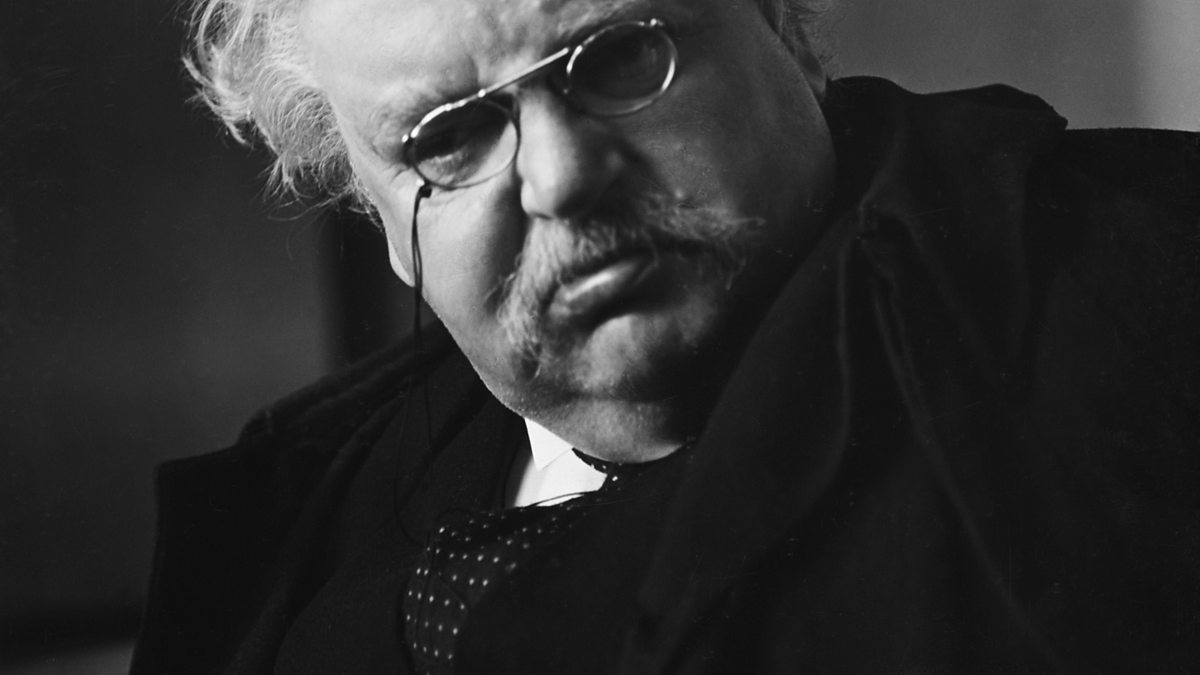
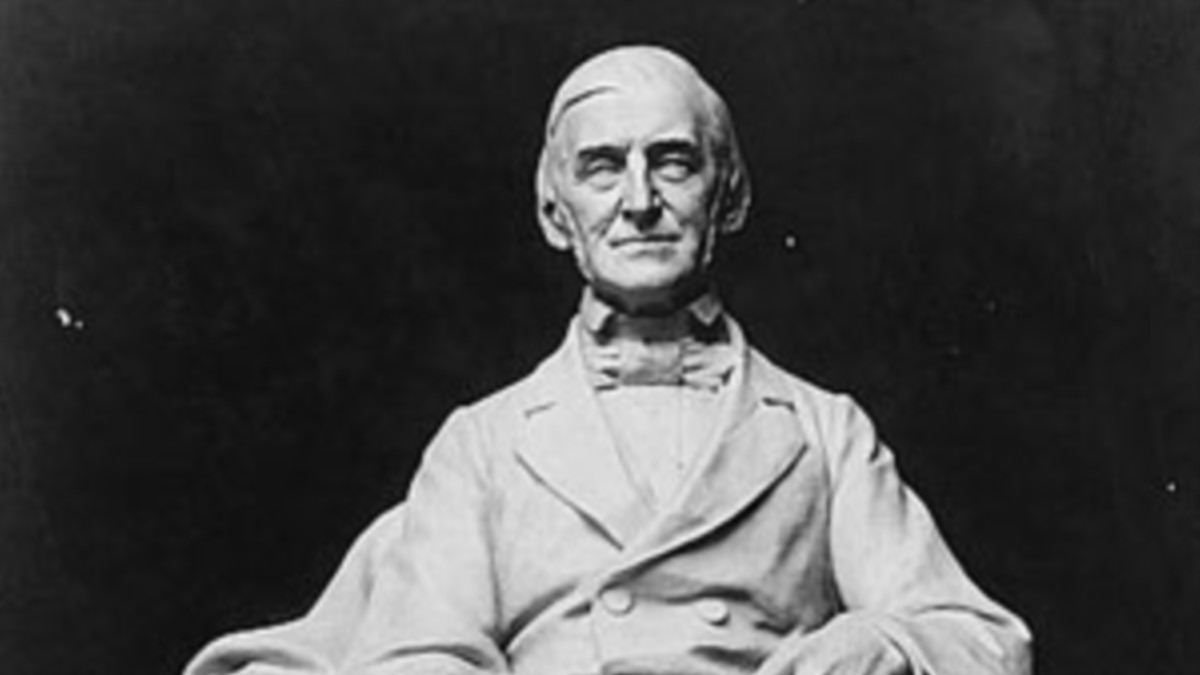
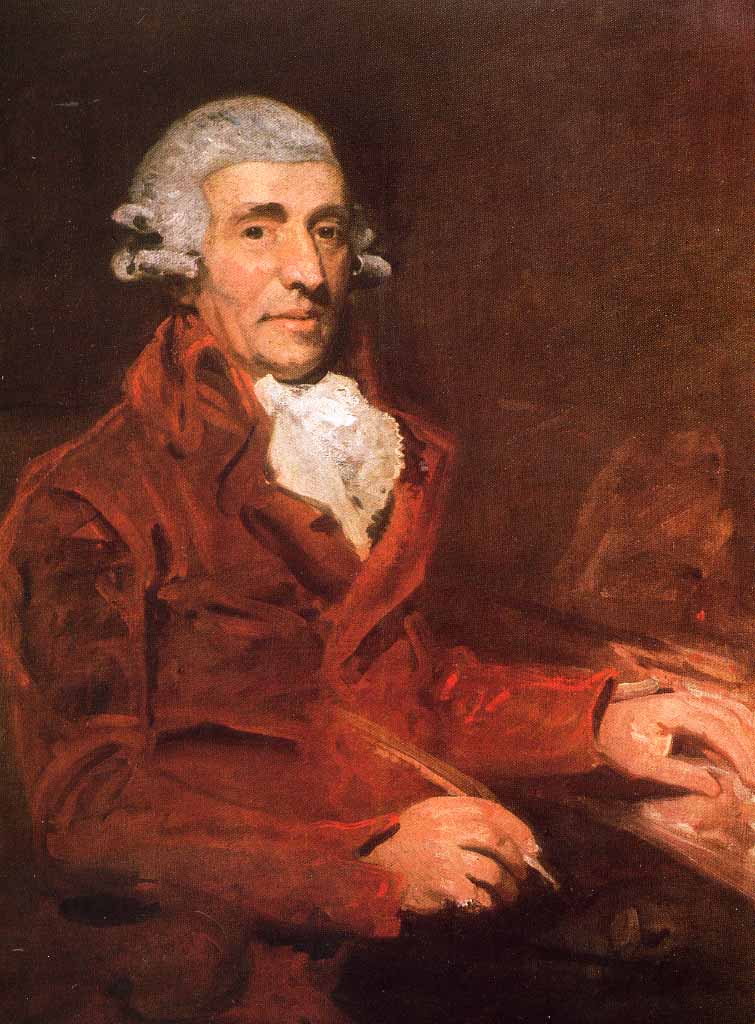
:format(jpeg):mode_rgb():quality(90)/discogs-images/R-1152290-1376858795-2759.jpeg.jpg)


